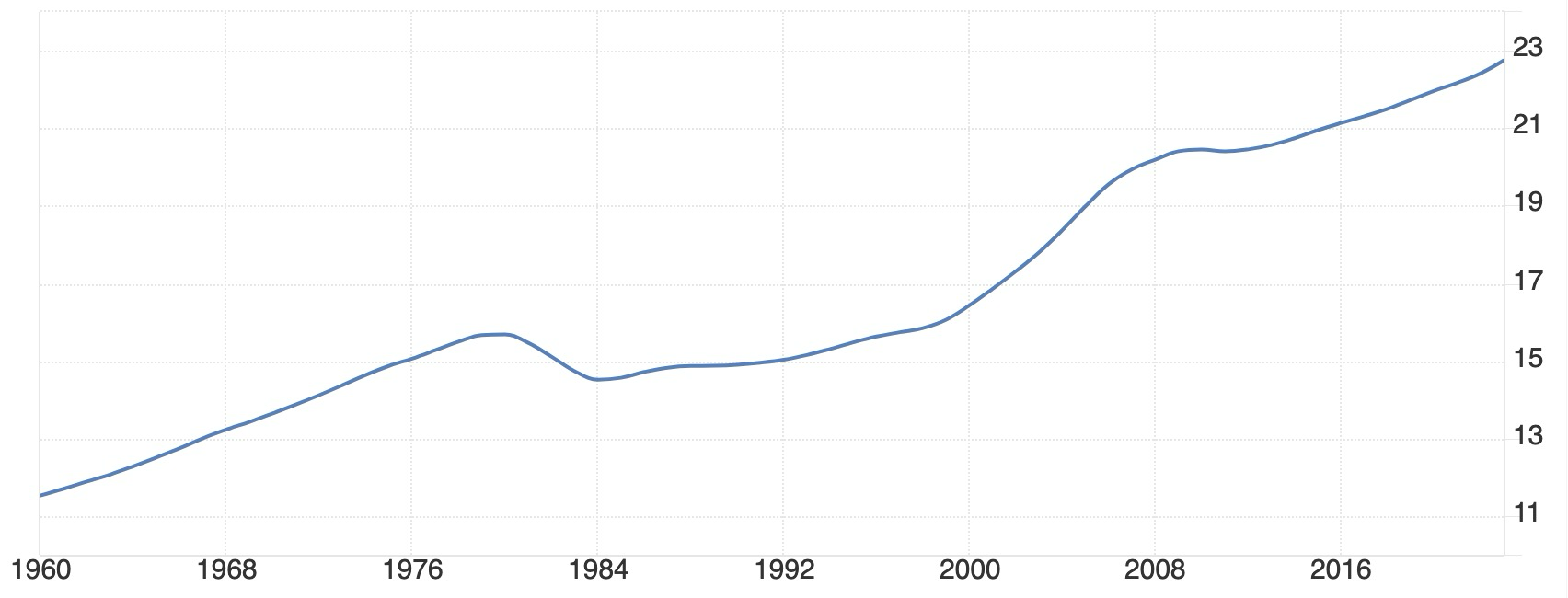I'm in Germany. It recently occurred to me that a number of things concerning daily life are not as good as they used to be a few decades ago. I am 60 and may be experiencing biased memories; but I think not all of this can be explained away. Examples are:
- Public services. For example, it is mandatory for German citizens to carry an ID, yet it is nigh impossible to get an appointment with the local administration to apply for one. There used to be a time when you could simply walk into the office, wait some not unreasonable time and fill out an application.
- Medical services. In the 70s and 80s it didn't seem to be a problem to make an appointment with a doctor, even a specialist, within a reasonable time frame. Now it is. Many specialists in Berlin, where I live, simply don't take on new patients.
- Public transportation. The German trains used to be proverbially punctual. Now, however, A member of the state-owned Deutsche Bahn board used the term "loss of control" regarding the timetables; delays have become more common than punctual arrivals, trips with more than a single connection cannot be reliably planned any longer etc. A similar development, only not quite as bad, concerns flights. Overbooking, overly long lines at the security check points and cancellations seem to be much more common.
- Terror danger. Taylor Swift must cancel concerts with hundreds of thousands of spectators. In the German town of Solingen a man stabs three visitors to death he has no connection to. In New York people are afraid to be pushed onto the subway rails by some mentally ill person.
- Tent cities, people in trouble. Some cities, probably in the U.S. more than in Europe, face a crisis that makes their centers uninviting for businesses and "regular people" alike.
- Craftsmen. It is hard to find a plumber or other craftsman for repairs. There used to be a time when one would look one up in the phone book and make an appointment, or probably know one in the neighborhood.
- Housing. There is a severe housing shortage in many cities, including Berlin and the Bay Area around San Francisco, prices are sky-rocketing, but the market does not respond as expected (by building new dwellings and satisfy demand).
There are certainly more issues — this was just off the cuff.
Many of these issues are related to public services in the wider sense, but housing, flights and craftsmen concern the private sector as well.
Some reasons are more or less well-known: Strapped public budgets; the attempt to let Deutsche Bahn go public with a need to make the books look better, leading to lay-offs and deferred maintenance; prohibitive zoning and building codes; increased migration driven by crises in connection with higher general mobility. The medical sector is in crisis mode almost everywhere for a variety of reasons.
It is also clear that life has improved in many ways, as NoDataDump notes, especially in the electronics and media realms. Some material wealth has increased as well: Cars and dwellings are bigger and better, foreign destinations are within easy reach, there is a greater selection of food in the supermarkets etc. But this does not explain why some basic things have gotten worse; on the contrary: Apparently, this decline has happened against a trend and is in need of explanation.
Still, it is a lot of a coincidence. I'm wondering whether there is an underlying theme or current or reason connecting them.
The development is also, at face value, unexpected. After all, the economies are much larger than they used to be in the 1970s or 1980s. They are certainly large enough to finance a functioning public administration.
What is going on?
